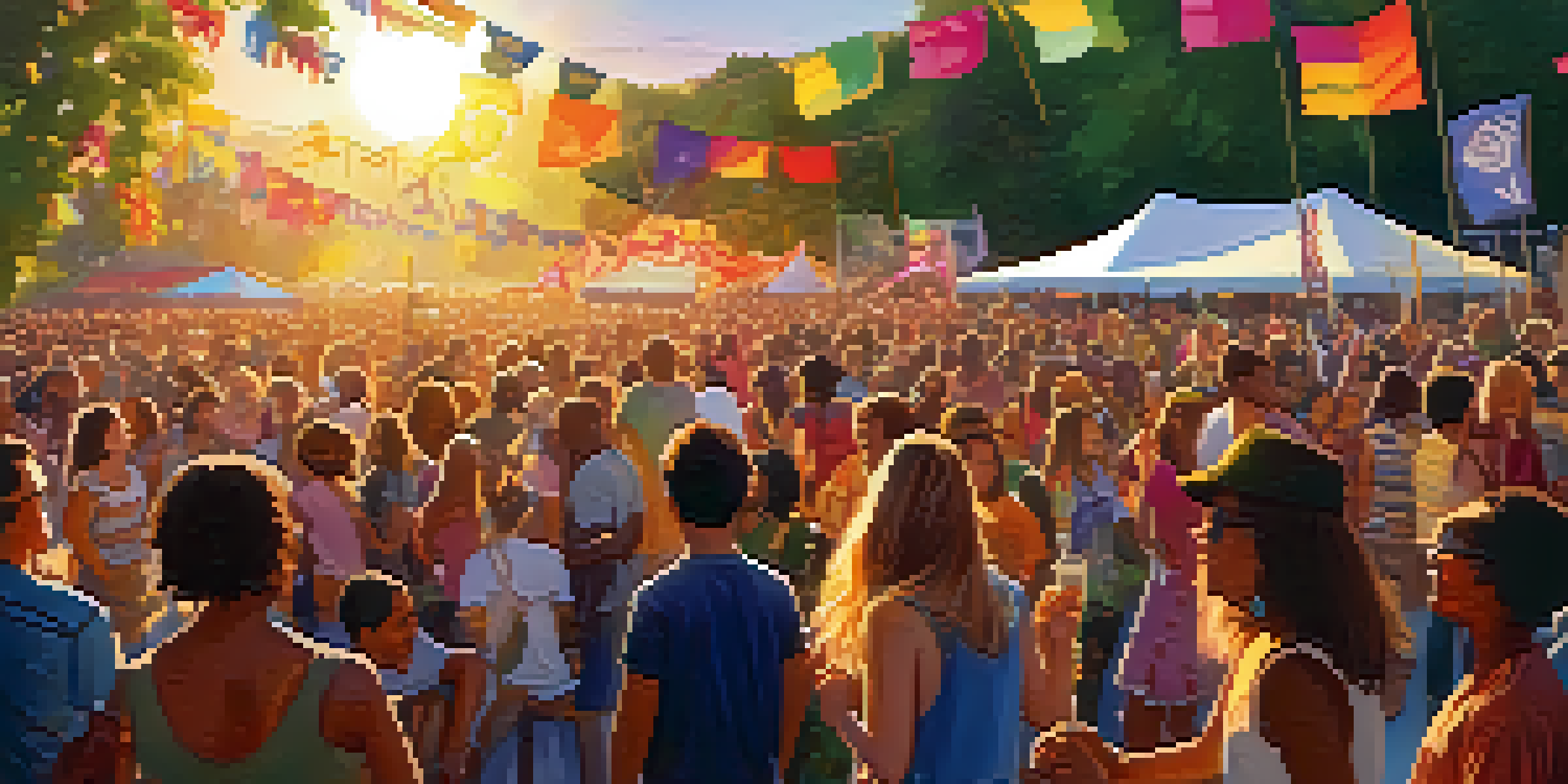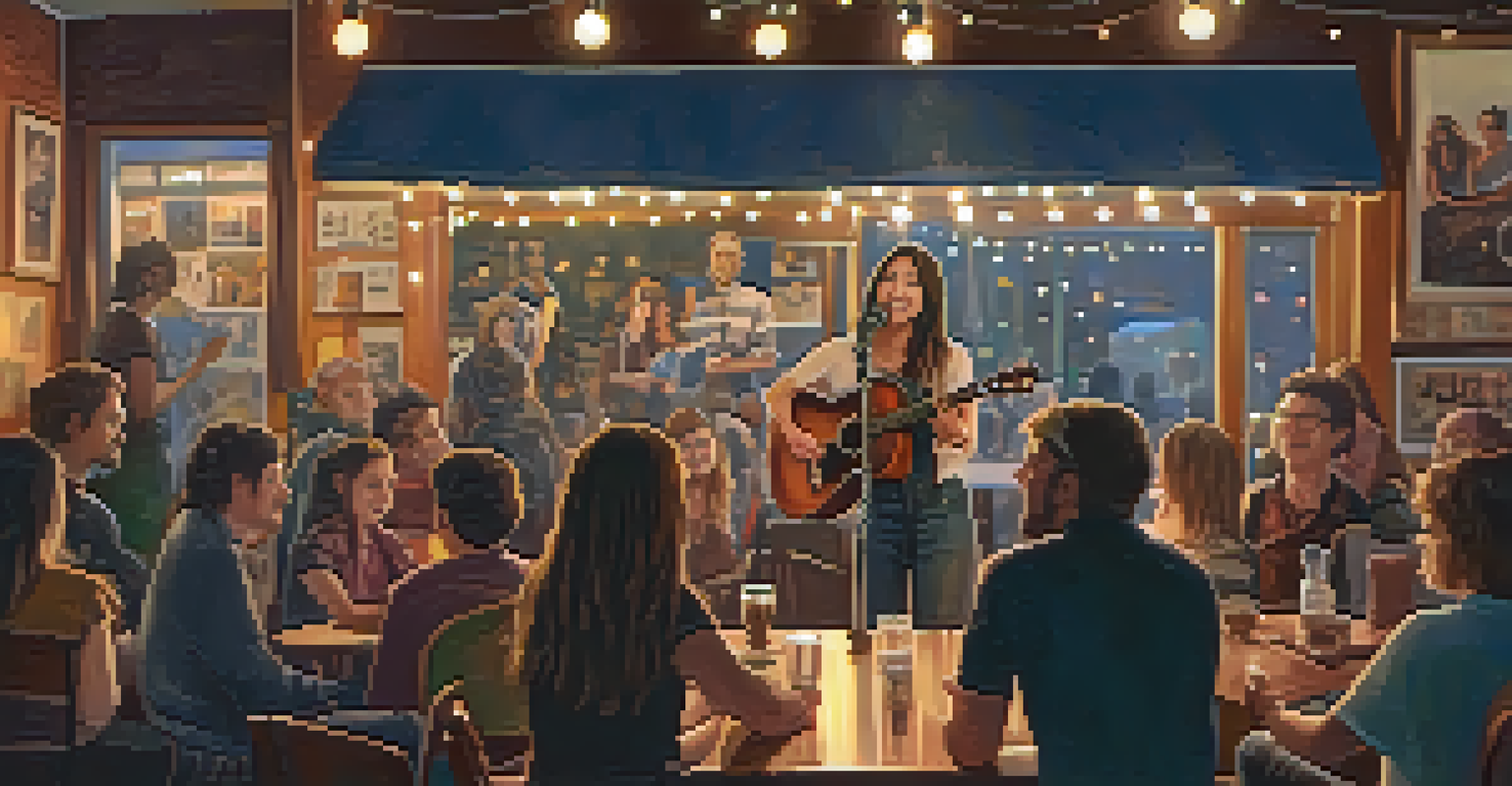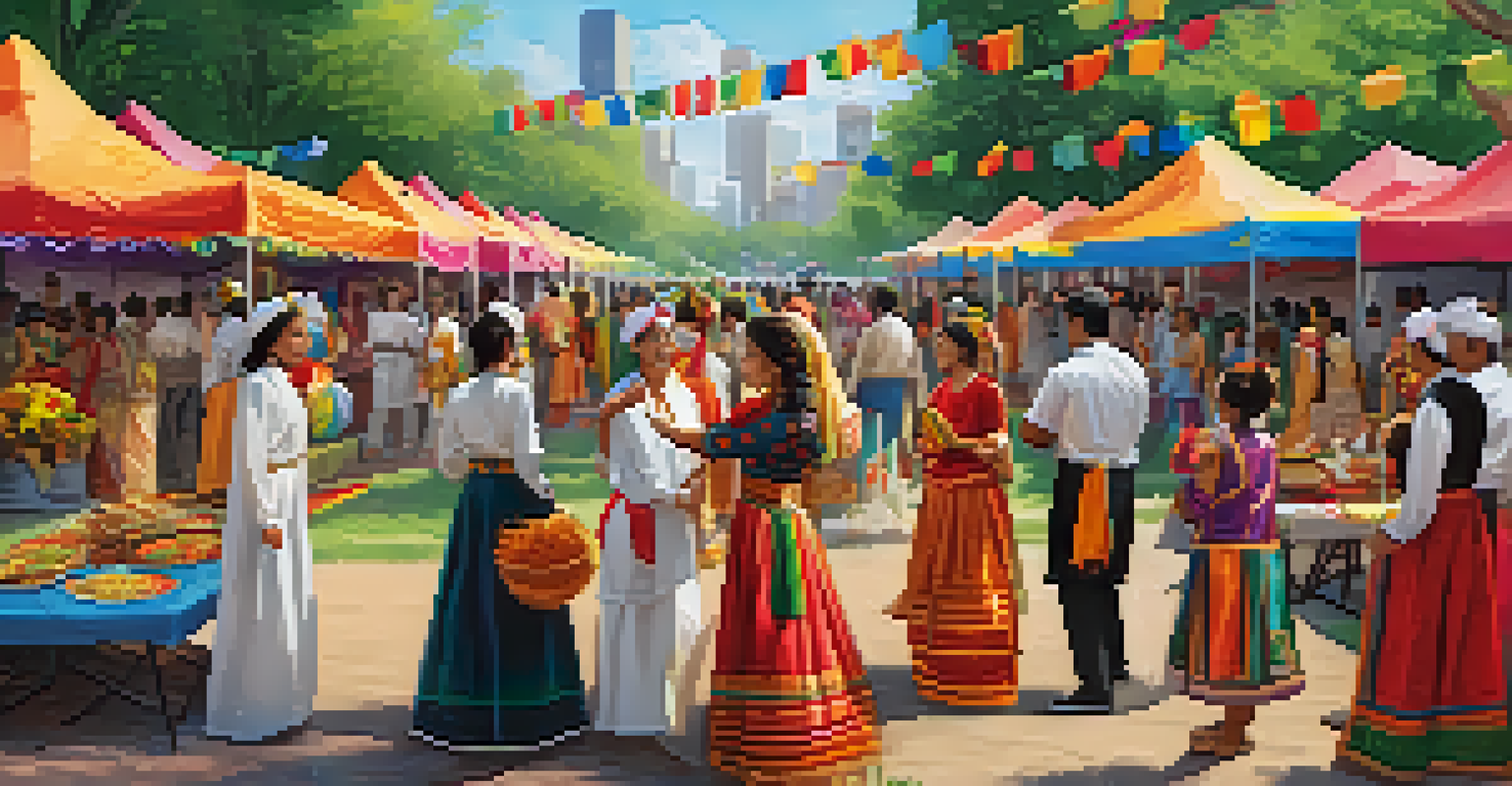Exploring Music's Influence on Community Identity and Belonging

The Power of Music in Community Identity Formation
Music plays a pivotal role in shaping the identity of communities. It often reflects the shared experiences and values of its members, creating a strong sense of belonging. For instance, folk music often captures the stories and struggles of a particular culture, helping to preserve its heritage.
Music can change the world because it can change people.
When people come together to celebrate their musical traditions, they are not just enjoying the sound; they're reinforcing their community bonds. This shared experience creates a collective identity that can be incredibly powerful. Think of how a local choir or band can unite individuals from diverse backgrounds under a common purpose.
Moreover, music can serve as a bridge to connect generations. Older community members might pass down traditional songs to younger ones, fostering a sense of continuity and pride. This intergenerational exchange strengthens community ties and ensures that cultural identities are kept alive.
Music as a Tool for Social Cohesion
In many ways, music acts as a glue that holds communities together. Whether it's a neighborhood block party featuring local artists or a large festival celebrating regional music, these events cultivate unity and togetherness. They provide a space where differences can be set aside in favor of shared enjoyment.

For example, consider how a community might rally around a local band that plays at various events. This band becomes a symbol of local pride, and their music becomes the soundtrack to countless memories, reinforcing the idea of 'we' over 'me.'
Music Shapes Community Identity
Music reflects shared experiences and values, fostering a strong sense of belonging within communities.
Additionally, music can promote social change by bringing awareness to community issues. Songs that address social injustices can inspire collective action, further strengthening the bonds within a community as individuals work towards a common goal.
Cultural Diversity and Musical Expression
Communities are often rich tapestries of cultural diversity, and music is a vital medium through which this diversity is expressed. Different musical genres represent unique cultural backgrounds, allowing individuals to share their stories. This sharing helps foster understanding and appreciation among community members.
Where words fail, music speaks.
Take, for instance, a city with a vibrant immigrant population. Various cultural music festivals can showcase the different traditions, allowing residents to learn about and celebrate these diverse heritages. In doing so, music creates a shared space for dialogue and connection.
Moreover, when communities embrace musical diversity, they create inclusive environments that welcome everyone. This celebration of different musical styles can lead to innovative collaborations, blending genres and creating new sounds that reflect the community's collective identity.
The Role of Live Music in Building Community Bonds
Live music events have a unique ability to bring people together, creating memorable experiences that strengthen community bonds. Whether it's a concert in the park or a local open mic night, these gatherings allow individuals to connect over shared interests. The energy of live performances can foster a sense of belonging that recordings often cannot replicate.
Imagine attending a local festival where everyone is dancing to the same beat. This collective engagement creates an atmosphere charged with positivity and camaraderie, reinforcing the idea that we are all part of something greater than ourselves.
Live Music Strengthens Bonds
Live music events create memorable experiences that enhance connections among community members.
Furthermore, local musicians often draw inspiration from their communities, writing songs that resonate with shared experiences. This connection between the artist and audience enhances the sense of belonging, as attendees feel their stories are being told through music.
Music and Collective Memory in Communities
Music is a powerful vehicle for collective memory, helping communities remember important events and shared histories. National anthems, protest songs, and even local jingles serve as reminders of significant moments that shape community identity. They evoke emotions and memories that can unite individuals around a common narrative.
For example, during times of hardship, communities often turn to music for comfort and resilience. Songs that reflect struggles can become anthems of hope, reminding everyone of their shared journey. This collective memory can be a source of strength during difficult times.
As communities evolve, the music that represents them changes, but those memories remain. New generations can take these songs and create their interpretations, ensuring that the essence of the community's identity is preserved while also adapting to contemporary contexts.
Music as a Form of Protest and Empowerment
Throughout history, music has served as a powerful form of protest, giving a voice to those who feel marginalized. Songs that call for change resonate deeply within communities, inspiring collective action. This ability to mobilize individuals around a shared cause strengthens community identity and belonging.
Consider the civil rights movement in the United States, where music played a crucial role in uniting people against injustice. Songs like 'We Shall Overcome' became anthems of hope and resilience, symbolizing the strength of community solidarity.
Music as a Tool for Change
Throughout history, music has empowered communities to protest and advocate for social change, uniting individuals around common causes.
When communities come together through music to advocate for change, they foster a sense of empowerment. This shared mission can create lasting bonds, as individuals realize their collective strength and the impact they can have when united.
The Future of Music in Community Building
As technology evolves, so does the way music influences community identity and belonging. Digital platforms have made it easier for individuals to connect with others who share their musical interests, breaking down geographical barriers. Online music communities can foster connections that lead to real-life gatherings and collaborations.
Moreover, the rise of social media allows local musicians to reach wider audiences, creating a sense of community that extends beyond physical boundaries. Virtual concerts and collaborative projects can unite people in ways that were previously unimaginable, reinforcing the idea that music can connect us all.

Looking ahead, it's crucial for communities to embrace these changes while ensuring that the essence of local culture remains intact. By nurturing the connection between music and community identity, we can continue to foster belonging in an ever-evolving world.